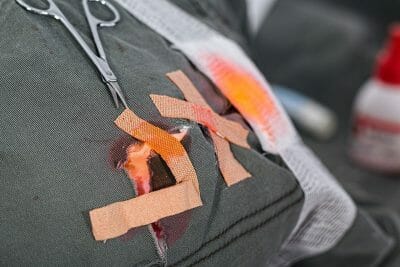Going through a traumatic experience like a car accident, sexual assault, or natural disaster can leave you feeling overwhelmed and scared. To help with the recovery process, it’s essential to focus on yourself and take the time to heal. Here are some things that Tampa criminal attorney, Mike G Law, recommends as you start your trauma recovery journey:
1. Take Time Off Of Work
After a traumatic experience, taking time off of work is vital for your body and mind to recover. Healing from injuries is not a quick process, and it’s important to allow yourself time away from the workplace to focus on physical and emotional healing. Look into resources such as the Family Medical Leave Act, short-term disability benefits, or unpaid leave to ensure that you have time off you need without worrying about financial stability. Tampa criminal attorney, Mike G Law, advises you to speak with your company’s HR department or consult a lawyer about these options if needed.
2. Utilize Therapy
No matter what kind of trauma you’ve experienced, it is essential to talk about your experience and feelings related to the incident. Therapy can be a great way to work through emotions, receive support from professionals who can provide guidance and tools to help manage stress and anxiety, or process the trauma in a safe environment. Coping skills and other forms of therapy can be beneficial for understanding and healing from trauma.
3. Consider Medication
Medication may be necessary to help you heal from physical and mental trauma. If you are experiencing physical pain or discomfort, speak with a doctor about medications that can help manage symptoms. For mental trauma such as depression, anxiety, and PTSD, medication is also an option that can provide relief from difficult symptoms. Consult a professional to determine if this treatment is right for you.
4. Build A Support Network
Having a network of friends, family members, and therapists to talk to can be essential to trauma recovery. This support system doesn’t need to consist of people directly involved in the traumatic experience; it can also include other trustworthy individuals with whom you feel comfortable discussing your experience. These people can provide emotional support, understanding, and a listening ear without judgment.
5. Prioritize Self-Care
Self-care is essential for healing after trauma and should be a priority throughout recovery. This can include taking time off from work, doing activities that make you feel good, and allowing time to relax. Make sure you get enough sleep, eat healthy meals and snacks, and engage in physical activities that make you feel good. If needed, speak with a therapist about developing a self-care plan tailored to your needs.
6. Practice Forgiveness
Forgiving yourself (or even those responsible for the trauma) can be difficult, but it is an essential part of the recovery process. It’s important to acknowledge that you are not at fault and to remember that no one deserves to go through a traumatic experience. Practicing forgiveness can help you move on from the event and begin to heal.
7. Create A Positive Environment
Creating a positive environment at home and in the workplace can be helpful for trauma recovery. This includes making sure that you feel safe, comfortable and supported. Talk to your employer about any changes that may be needed (e.g., more flexible hours) and look into resources such as counseling services or support groups that can help you feel more secure.
8. Seek Help As Needed
Finally, it’s important to remember that recovery from trauma is a process, and it’s okay not to be okay. Don’t hesitate to reach out for help if you feel like your mental or physical health is suffering due to the traumatic experience. Some professionals can provide the resources and support necessary to get you back on track.
Final Thoughts
Ultimately, Tampa criminal attorney, Mike G Law understands that healing from trauma can be difficult, but it’s possible to manage your symptoms and move forward with life. Take your time, find strategies that work for you, and don’t hesitate to seek help if needed. With the right resources and support, it is possible to begin the healing process.
